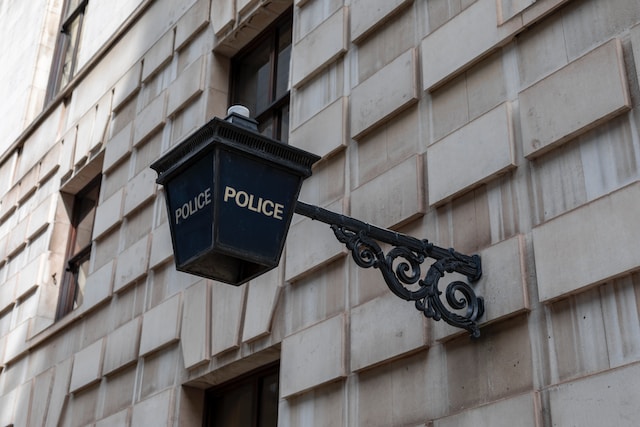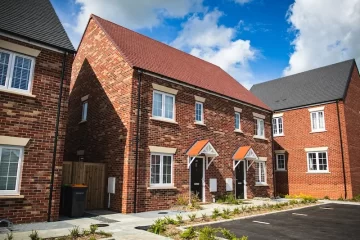I’m writing this post because what happens immediately after an incident of domestic abuse can determine how the next few days go and also how difficult or easy it is to get the ongoing help you need- in terms of help with housing, criminal and civil measures and also help from other organisations – so, forewarned is forearmed!
Domestic Abuse Protection Notices/Orders
Domestic Violence Protection Notices have been around in the UK since 2014 – but still, many people aren’t aware of them and they are seldom used by police! It is worth knowing about these, because you may want to proactively request one following a 999 call to police.
Just to be clear, the paperwork begins as a ‘Notice’ and continues as an ‘Order’ once granted in Court – police apply to Court on your behalf for the Order – you don’t have to attend, but you may be asked for your views.

The positives: DVPOs are a civil order that fills a “gap” in providing protection by enabling the police and magistrates’ courts to put in place protective measures in the immediate aftermath of a domestic violence incident- where there is insufficient evidence to charge an abuser, and it provides protection to you via bail conditions. A DVPO can be issued where there is perceived violence/threat of violence and the abuser would otherwise be released from custody with no charge or Bail conditions. It will prevent the abuser from returning to your home and from contacting you for up to 28 days. This allows you to have some ‘breathing space’, time to consider your options and get advice and support without contact or harassment from your abuser.
You don’t have to leave your property in order to be safe (though there is no guarantee the abuser will abide by the Order) and it allows you time to consider whether you still want to remain in or end your relationship. It gives you time to get advice on your legal options and Rights, without further manipulation and emotional abuse . The abuser can be arrested for breaching the DVPO.
The challenges: As mentioned, they are under-used by police, and you may have to try and persuade police to apply for one on your behalf.
Domestic Abuse Protection Orders are the new variation of DVPO’s – with tighter restrictions for abusers, to electronically tag them or force them to attend domestic violence perpetrtor programmes, but these are still only available in certain areas which are participating in the pilot scheme until 2026 – Gwent, Greater Manchester, the London Boroughs of Croydon, Sutton, and Bromley, and with the British Transport Police. If you live in these areas, it’s definitely worth an ask if police can apply for one of these!
Non-Molestation Orders
It might be suggested that you apply for one of these Orders, rather than the police applying for a DVPN.
The positives: A Non-Molestation Order is very useful and works in a similar way to a DVPN but usually means that the abuser has to refrain from harassing, pestering or contacting you for a longer period, perhaps 6 months or so, so they have conditions in place for longer than a DVPO.
A NMO can also include specific details such as not to contact you via social media, not to contact you except about child contact or via solicitors, or attend certain places such as school.
It is also a unique kind of Civil Order, as it becomes a criminal offence if the abuser breaches this Order and any breaches need to be reported to police.
The challenges: The reality is, that many Courts are not issuing NMO’s as easily as they used to, instead encouraging you both to agree to Undertakings (a promise to the Court). Undertakings don’t have the same power as an NMO and if breached, rely on you to apply back to Court to enforce the breach.
Your abuser will also have the chance to object to the application, so there will also be a Court hearing where you both have to attend. This can obviously be quite stressful when you are having to mention your fears in the same room as your abuser and you may worry about repercussions.
If you cannot afford solicitors’ fees or aren’t entitled to Legal Aid, you will have to represent yourself at Court, which can also feel quite scary, even if you have screens so you can’t see your abuser.
Options
There are pro’s and cons to all these measures and this is by no means an exhaustive list of the advantages and disadvantages. You need to do what you think is best FOR YOU.
You know your abuser better than anyone, what will trigger them, what might escalate the situation and whether they are likely to abide by such measures or not. They are options – there to protect you if and should you want to use them and if you are going ahead with any of these measures, it is vital that you get ongoing support from specialists in domestic abuse – someone like myself or your local domestic abuse organisation who can guide and help you through the process.
You can read more about these measures here: https://assets.publishing.service.gov.uk/media/636a3b0ce90e076190d2c4aa/DVPO_guidance_November_2022.pdf
Remember, safety has to be the priority always. If you are concerned about your immediate safety always ring 999. If you want to discuss any of the above, just get in touch.


